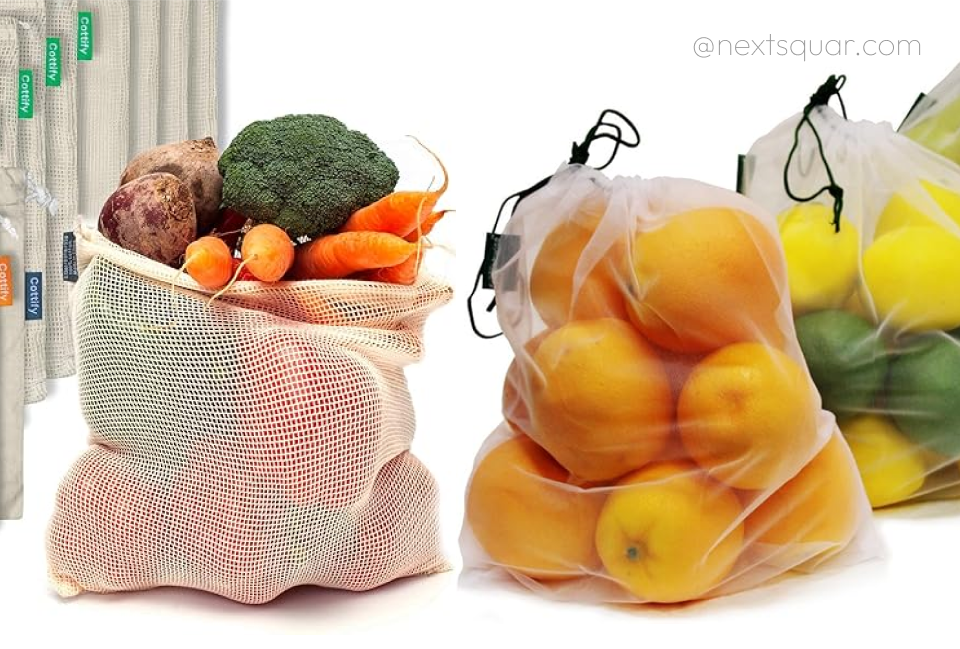Imagine stepping into your kitchen each morning and feeling empowered—knowing every tool you use contributes to a healthier planet. As a beginner home cook, embracing eco-conscious habits doesn’t have to be complicated or expensive. That’s why we’ve curated a list of beginner-friendly eco‑friendly kitchen gadgets perfect for small spaces, affordable budgets, and a lifestyle rooted in sustainability.
By adopting just a few zero waste kitchen essentials, you can significantly reduce single-use plastic, minimize food waste, and create a daily habit of mindful living. From smart storage hacks to compost-friendly solutions, let’s explore sustainable tools that make cooking easier—and greener.
Top Features to Consider
When you’re starting your eco-kitchen journey, these five key features will help you choose tools that are both effective and long-lasting:
- Material Matters
Look for items made of BPA-free silicone, stainless steel, bamboo, organic cotton, or recycled/recyclable plastics. These materials are durable, non-toxic, and built to withstand frequent use. - Reusable & Durable
The goal is to avoid one-and-done tools. Choose products rated for hundreds of uses—like silicone wraps that last years or mesh bags that stand up to countless grocery trips. - Ease of Cleaning
Items that are dishwasher safe or easy to rinse will stay with you long-term. Nobody wants to struggle with cleaning before or after use! - Space-Saving Design
For small kitchens or zero waste kitchen essentials small space, collapsible bins, stackable containers, or slim compost caddies make a big difference. - Odor & Stain Resistance
Tools that fend off lingering smells—like stainless steel will—and resistant surfaces will stay fresh and clean longer, especially if you’re preparing strong-flavored ingredients.
With those guiding points, let’s dive into our top picks that align with your eco goals.

Top 10 Eco-Friendly Kitchen Gadgets
Below are ten stellar products—each one thoughtfully selected for ease, sustainability, and value. You’ll find pros, cons, real-world applications, and honest reviews.
1. Earthwise Reusable Mesh Produce Bags
Why it matters:
Swapping single-use plastic produce bags for durable mesh keeps plastic out of landfills and waterways.

Pros:
- Lightweight, transparent mesh—easy to see produce
- Sets often under $15 for 9 bags
- Machine washable & long-lasting
Cons:
- Doesn’t block ethylene gas (use different bag for fridge produce)
Beginner tip:
Toss unrinsed after each trip—sink rinse and hang to dry, or toss in the laundry bag.
2. Onya Recycled-RPET Produce Bags
Why it matters:
Made from recycled plastic bottles, Onya bags reuse existing plastic while cutting your reliance on new plastic.

Pros:
- Holds up to 2 kg of produce
- Compact, comes in its own pouch
- Durable, rip-resistant
Cons:
- Around $22–$25—slightly pricier
- Limited color options
Beginner tip:
Perfect for farmers’ markets or bulk purchases—provides structure and peace-of-mind for heavy items.
3. Debbie Meyer GreenBags
Why it matters:
These absorb ethylene gas—the ripening trigger—helping produce stay fresh 2–3× longer, saving money and reducing spoilage.

Pros:
- Budget-friendly (~$0.75 per bag)
- Extends produce life significantly
- Tens of thousands of positive reviews
Cons:
- Wears out after ~8–10 uses
- Doesn’t clean like mesh or silicone
Beginner tip:
Use for fridge staples like berries and greens. Keep track of use count, or mark each bag with masking tape and a number.
4. Epica Stainless Steel Compost Bin
Why it matters:
Keeps food scraps on your counter without smell—cutting down on daily garbage and steering scraps toward compost.

Pros:
- 1.3-gallon capacity
- Stainless steel resists stains/odors
- Internal charcoal filter keeps air fresh
Cons:
- Lid is manual (not flip-top)
- Not fully dishwasher-safe
Beginner tip:
Line it with compostable liners or newspaper to simplify cleaning and take-out.
5. Full Circle Breeze Kitchen Compost Bin
Why it matters:
Designed for zero waste kitchens, it’s a compact, stylish bin with odor control for apartment counters.

Pros:
- Around 1 gallon
- Pleasant, modern design
- Replaceable carbon filter
Cons:
- May need frequent emptying for larger households
Beginner tip:
Pair it with compost bin for apartments reviews to find the ideal size—Breeze is great for 1–2 cooks.

6. Stasher Silicone Food Storage Bag – Quart Size
Why it matters:
A reusable solution for snacks, marinades, and bulk storage without plastic.

Pros:
- Replaces hundreds of disposable bags
- Oven, freezer, and dishwasher safe
- BPA- and phthalate-free
Cons:
- Higher initial cost (~$10–12 each)
Beginner tip:
Start with a quart-size—great for snacks or leftovers. Look for multipacks for savings.
7. Beeswax Wrap Set by Abeego
Why it matters:
Compostable and naturally antibacterial, these wraps seal bowls and sandwich bags without plastic.

Pros:
- Compostable at end of life
- Softens with warmth, fits lids and produce
- Great starter kit pricing
Cons:
- Not heat-resistant—avoid hot foods
- Needs occasional re-waxing to maintain stickiness
Beginner tip:
Use over a bowl of leftovers instead of plastic wrap—especially helpful for cheese or half-cut fruit.
8. Bamboo Utensil Set by Bambüsi
Why it matters:
Stylish, natural, and plastic-free, bamboo utensils are perfect for mixing, serving, and prepping.

Pros:
- Light yet sturdy bamboo
- Reusable carry pouch for lunches/travel
- Compostable at lifecycle end
Cons:
- Fewer shapes than metal sets
Beginner tip:
Keep one set in your go-to drawer and one portable set for picnics or work lunches.
9. Klean Kanteen TKWide 12oz Stainless Food Canister
Why it matters:
Stainless steel containers for lunch, snacks, or bulk goods—durable, leak-proof, and waste-free.

Pros:
- Triple-walled for insulation
- Rust-resistant, leak-proof
- Dishwasher safe
Cons:
- Heavier than silicone or plastic
- Pricier (~$30–$35)
Beginner tip:
Start with the 12oz for snacks or soups. Great daily eco-living kitchen product for busy beings.
10. Casabella Compostable Scrub Brush with Coco Fiber
Why it matters:
A biodegradable alternative to plastic scrub brushes—good for dishes and the planet.

Pros:
- Compostable wooden handle & natural coir bristles
- Strong, everyday cleaning tool
- Under $10
Cons:
- Needs replacing more frequently than nylon
Beginner tip:
Hang it to dry between uses to prolong lifespan—pairs nicely with biodegradable cleaning products for kitchen.
Detailed Product Comparison
| Gadget | Best For | Pros Summary | Price Guide |
|---|---|---|---|
| Earthwise Mesh Produce Bags | Plastic bag alternative | Washable, transparent, sets under $15 | $12–15 (9pc set) |
| Onya Recycled-RPET Produce Bags | Farmers’ markets, bulk shopping | Recycled material, strong, pouch included | $22–25 |
| Debbie Meyer GreenBags | Extending fresh produce life | Air-flowing & ethylene-absorbing, <1$ each | ~$0.75 each |
| Epica Stainless Steel Compost Bin | Kitchen counters, odor control | Charcoal filter, stain-resistant stainless | ~$30–35 |
| Full Circle Breeze Compost Bin | Small households, apartments | Compact, with replaceable carbon filter | ~$20–30 |
| Stasher Silicone Food Bag | Reusable storage, freezing, snacking | Dishwasher/microwave/oven safe, durable | ~$10–12 each |
| Abeego Beeswax Wrap Set | Plastic wrap replacement, salads, cheese | Compostable, reusable, natural seal | ~$15–20 per set |
| Bambüsi Bamboo Utensil Set | Plastic utensil replacement, portability | Compostable handle, lightweight | ~$12–18 |
| Klean Kanteen Food Canister | Meal prep, hot lunches, soups on-the-go | Insulated, stainless, leak-proof | ~$30–35 |
| Casabella Coco Fibers Scrub Brush | Eco-friendly cleaning | Compostable, strong coir bristles | Under $10 |

Buying Guide — Tips for Choosing the Best
1. Know Your Needs
Decide which issue matters most to you:
- Reducing plastics? Start with reusable bags and wraps.
- Cutting down waste? Try a compost bin.
- Storage organization? Grab food canisters and silicone bags.
2. Look for Quality Over Quantity
Quality products last longer, saving money and waste in the long run—even if upfront they’re a bit pricier.
3. Mix & Match for Versatility
A silicone bag can double as a storage option and snack pouch. A compost bin could serve for peels or paper waste too.
4. Check Material Certifications
- Food-safe silicone should be FDA-certified.
- Bamboo should be FSC-certified.
- Compost bins can use charcoal filters; look for replaceable parts.
5. Size Matters
For small kitchens or apartments, 1-gallon compost bins (Epica, Breeze) are ideal. Snacks and lunch containers sized 8–16oz keep counters uncluttered.
6. Budget Wisely
- Reusable produce bags: $15 for a mesh set.
- Compost bins: $20–35.
- Silicone/reusable bags: $10–12 each.
- Daily utensils or cost-cutting tools: under $12 each.
Spread your purchases over days or weeks—no need to do it all at once!
FAQs
Q1: Silicone food wraps vs beeswax wraps—which is a better choice?
It depends! Silicone wraps are durable, heat-resistant, dishwasher-safe, and better for wet foods. Beeswax wraps are compostable and naturally anti-bacterial, great for sandwich wrap or dry foods—though they’re less flexible with heat. For beginners, silicone offers higher utility; beeswax adds compost value when you’re ready.
Q2: Are compost bins OK for apartment living?
Yes—models like the Epica Stainless Bin (1.3 gal) or Full Circle Breeze (1 gal) are compact, filtered, and odour-resistant—perfect for counters without clutter or smell.
Q3: Will produce bags really save me money?
Definitely. Mesh/reusable bags reduce plastic waste cost (£££ over time), and ethylene‑absorbing bags like GreenBags help produce last double or triple longer—saving grocery bills and preventing spoilage.
Q4: How do I clean and maintain these tools?
- Mesh/cotton bags: Machine wash on cold, hang to dry.
- GreenBags: Rinse gently; mark usage count.
- Stasher/Silicone: Dishwasher-safe, or wash with warm soapy water.
- Bamboo utensils & brushes: Rinse, air dry, hang up to prevent moisture.
- Compost bins: Wipe down regularly, replace charcoal filters as instructed.
Conclusion
Embarking on your journey toward an eco-conscious kitchen doesn’t require a full overhaul—it starts with small swaps that align with your cooking habits and space. Whether it’s ditching plastic produce bags, sealing leftover scraps in silicone pouches, or tackling food waste with a countertop compost bin, each gadget brings simplicity, savings, and satisfaction.
Your next step? Pick one or two—from our Top 10 list—that feel attainable and useful. These starter tools become reliable habits, forming the foundation of your sustainable kitchen path. Over time, a peaceful, eco-friendly kitchen grows naturally—supporting your beginner spirit with trust, ease, and a greener planet.
If one of these helpful, honest options resonates (like reusable bags or a compost bin), you can explore thoughtfully crafted options on Amazon—many with trusted reviews and eco credentials. Small investments now can lead to bigger changes down the line.
Happy cooking, happy planet 🌱


